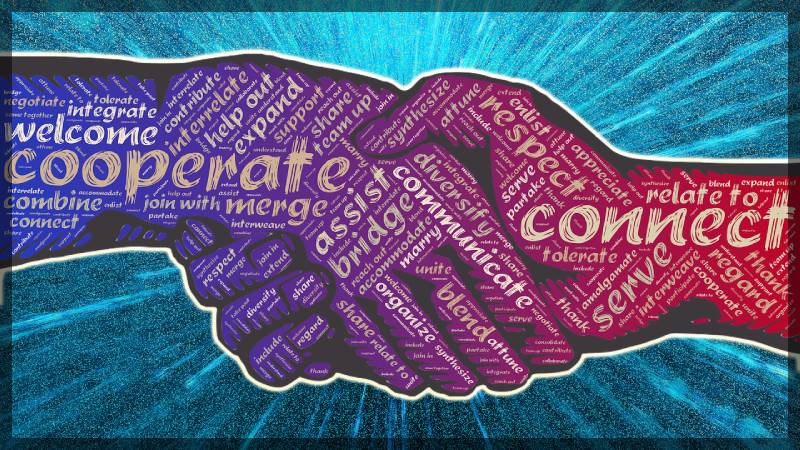
What are communication skills?
Communication skills are the ability to transfer information to others by speaking, writing, reading and listening. Communication is a necessary part of our daily life and requires us to know how to use language in ways that will make others understand our message.
How do communication skills affect negotiation and conflict resolution outcomes?
Communication skills are essential to develop and nurture within all facets of life to maintain relationships and even solve conflicts. Communication skills are a tool that you can use to help create or diffuse situations, for good or for ill.
How do preconceived attitudes or hidden agendas affect communication skills?
Communication skills are integral to the success of any negotiations. However, many people find it challenging to feel confident when communicating with others if there are preconceived notions of hidden agendas. It is important to remember that communication is a two-way street and that both parties should be approachable and open-minded to create a positive experience.
How to Improve Your Communication Skills in 10 Simple Tips
Communication skills are crucial to development. They can help you in all areas of your personal life and career. The following is a list of 10 tips that will help you improve your communication skills.
- Be a good listener.
- Practice active listening.
- Speak with confidence:
- Use appropriate tone and volume.
- Clarify your message before speaking.
- Constructively give feedback.
- Encourage others to speak up by asking questions and waiting for answers.
- Avoid interrupting others while they are speaking or finishing their sentences for them. This situation is called mind reading.
- It is best not to make assumptions about what you believe other people are thinking by observing their body language, facial expressions, words, or tone of voice. Ask them what they are thinking or feeling instead.
- Use humour to lighten the mood.

Further Tips for Effective Communication Skills
Communication skills require a two-way process. One person speaks, and the other listens. When communicating with someone, try to be mindful of what they say and how they respond to your words. It may also help to take a break from time to time so that you can return with renewed energy and focus.
Good communication is vital for sustaining a healthy relationship with anybody in your immediate home, work or community. Here are some standard rules for communication skills that will surely help anybody reading this post.
Good communication always starts with an intention, a reason, a reference point and a purpose. Communicating a message is about knowing your audience and the impact you want to make. The easier you can help your audience understand, the better.
For example, if you are trying to get your audience to buy a product, your message might be, “The organic hair shampoo is the best product ever, as it will change everything you know about preventing hair loss.”
Have Empathy and Compassion for your audience
Healthy communication skills are assisted by compassion and emotional intelligence regarding other people’s feelings and personality types. Having compassion also helps you to seek understanding rather than trying to prove yourself right by disagreeing with others.
The ability to have compassion allows you to listen to what someone means with the words they speak and not just the words used themselves. To practice greater compassion, focus on the emotional needs of the person you are communicating with: They may need a feeling of certainty, significance or a sense of purpose. Seeking these can make your company more enjoyable for all involved.
Explore Good Listening Skills
The human brain can process as much information when listening as when speaking. Ensure you listen twice as much as you deliver in a conversation. That way, you can take in everything rather than push your views and opinions. Make a habit of turning off your inner dialogue when listening to people. You will become better at understanding them and communicating with them.
Take Responsibility for Perceptions
Good communication skills are enhanced when we take responsibility for our perceptions, but we also have to let people be responsible for theirs. It is vital to consider boundaries when communicating with someone, as you may not be able to understand one another and may end up making things worse with incorrect assumptions, judgements, and decisions that may stem from these assessments.
The Reciprocity Effect
Communication requires the ability to listen and make yourself understandable. In turn, you can allow others to do the same for themselves. This reciprocity effect helps both parties understand one another, which is crucial for any conversation or negotiation that results in win-win outcomes.
Factor in Honesty
Clear communication starts with honesty! If the key facts are left aside or lying outright, it leaves the wrong impression, and all communication will be inadequate.
One strategy for exploring good communication skills is to outline a best-case scenario and a worst-case scenario. This creates a level playing field for both parties and gives them an idea of what to expect.
Have Consistency in your Projection
Practising the principles of good communication helps with the consistency necessary to get positive results for all involved. As People and circumstances change dynamically, you should practice communicating with the people in your life to grow and mature the relationship.
Seek Clarity in the Key Message you Convey
When communicating to any audience, you must be clear in your message and use simple words and phrases that can be very helpful. Using simple words and phrases will help your audience remember what you said. It is also much easier for them to understand what you are trying to communicate if they have any questions or concerns.
Explore Humour in Your Message
Humour is an interesting and exciting way to communicate and can add a friendly tone to any conversation. Just make sure you know when it is appropriate and when it is not.
Explore Problem-Solving to Help Others
A lot of the conversations you have in your everyday life will be to help you come up with an ingenious solution to a problem. Problem-solving skills are required to be good at listening, empathy, etc.
By listening to others, you may be able to help them get more things done just by throwing in a different perspective on a problem situation with a unique solution.
Communication skills are needed to solve any problem. When you are working on a problem, you should notice the emotions and thoughts of all the people involved in this problem. You should also ask questions and respond with empathy.
Always Consider Respect for Others
When talking to others, treat them how you want to be respected. When someone is not present in context, always speak about them positively and respectfully.

The Importance of Listening & Responding Effectively In a Conversation
Listening as part of a receptive communication strategy is often overlooked in conversations. Listening to the other person and understanding what they are saying is essential before responding.
Listening skills are vital in both personal and professional life. When conversing, listening is more than just hearing what the other person is saying—it is about understanding their point of view and responding appropriately and effectively.
Always consider the level of interest when communicating.
The level of interest that someone has in your message is a crucial factor in the success of your exchange. This situation can be determined by understanding their communication preferences and mental state. Do they want to hear what you have to say?
It might be that they may not be interested in a different point of view than yours. In that situation, further conversation may not be worth your time. \It might be that the audience does not want to hear your point of view because it is not in line with popular opinion.
In this case, it is probably best to leave them alone or redirect the conversation by asking questions about what you think is more meaningful for them to know.
What are some common problems that affect communication skills?
Many problems can affect communication skills, such as the most common errors:
- Poor listening skills: Some people do not listen or take in information from others.
- Have tolerance for other opinions when some people are not open to having their views challenged.
- Easily distracted, some people get so focused on one topic or note that they cannot pay attention to other aspects mentioned.
- With limited vocabulary, the audience with limited Vocabulary may have difficulty understanding others and if they need to respond using complicated words.
- Low self-esteem makes people incapable of doing anything right or saying anything intelligent.
- Fear of being judged – people may fear how others react to their ideas.
- In imposter syndrome, some people do not deserve the success and positive feedback they may get because something is wrong with them.
- Sensitivity: Some people are so sensitive to criticism that they do not want to hear anything about their flaws.
- Fear of embarrassment: Some people fear making mistakes and getting embarrassed in front of others.
- Speed of Message Delivery: The speed at which you speak can affect your ability to be understood by someone. The slower the speech, the higher the chance that others will grasp what you are saying. Speak gradually and with pauses to increase your chances of being understood. Speak slowly and use short intervals when discussing unfamiliar subjects or challenging concepts.






